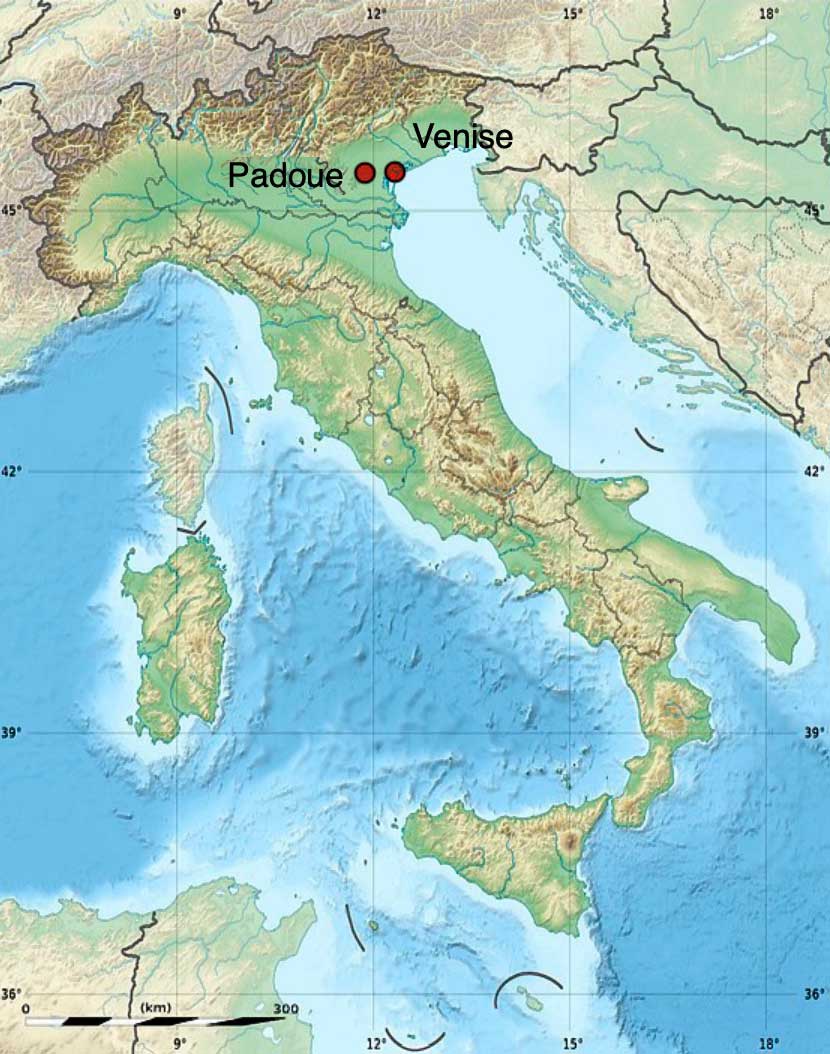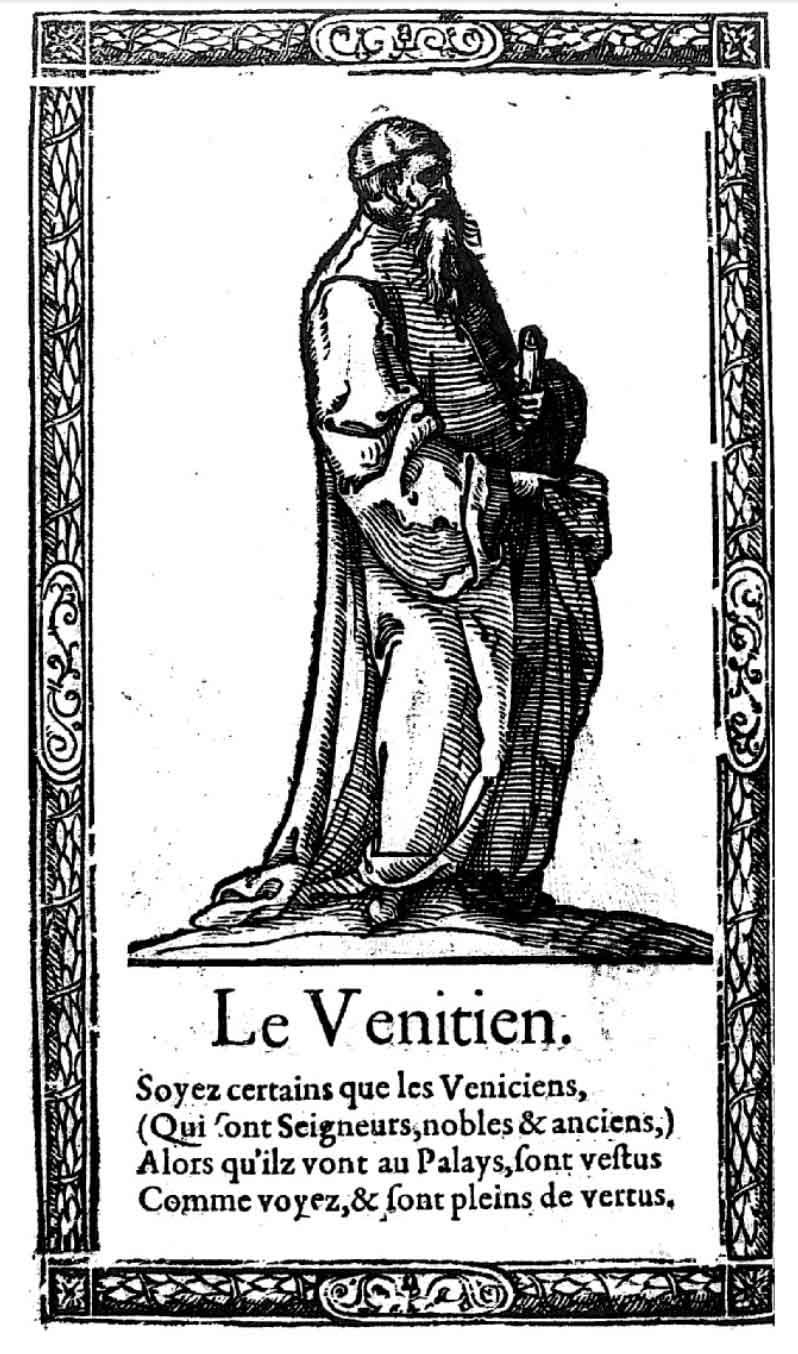the Antenorides and Venetians,
Original French: les Antenorides & Venetians,
Modern French: les Antenorides & venetians,
Notes
Antenorides and Venetians

The Antenoridae are the people of Padua, founded by Antenor the Trojan.
Le Venitien

Soyez certains que les Veniciens,
(Qui sont Seigneurs, nobles & anciens,)
Alors qu’ilz vont au Palays, sont vestus
Comme voyez, & sont pleins de vertus.
Antenorides
Antenor could escape the Achaean host, thread safely the Illyrian gulfs and inmost realms of the Liburnians, and pass the springs of Timavus, whence through nine mouths, with a mountain’s mighty roar, it comes a bursting flood and buries the fields under its sounding sea [The Timavus, which rises in the Julian Alps]. Yet here he set Padua’s town, a home for his Teucrians, gave a name to the race, and hung up the arms of Troy; now, settled in tranquil peace, he is at rest. But we, your offspring, to whom you grant the heights of heaven, have lost our ships—O shame unutterable!—and, to appease one angry foe, are betrayed and kept far from Italian shores. And thus is piety honoured? Is this the way you restore us to empire?”
antenorides
Antenorides
Les Padüans, qui descendent, dit-on, d’Anthenor.
Antenorides
Padouans, qui prétendoient descendre d’Antenor.
Antenorides
The Antenoridae are the people of Padua, founded by Antenor the Trojan.
Antenorides
Les descendants d’Anténor, fondateur de Padoue. Cf. Virgile, Énéide, I, 242, 247, et le commentaire de Servius sur ces vers. R.E.R., IV, 359.
Antenorides
Descendants d’Anténor, fondateur de Padoue. L’anecdote sur Jules César figurait dans la Vie de César de Plutarque et chez le compilateur Coelius Rhodiginus (Antiquae lectiones, x).
Antenorides
Habitants de Padoue, descendants d’Anténor, fondateur de la ville.
Antenor
In Greek mythology, Antenor was a son of the Dardanian noble Aesyetes by Cleomestra; or, alternately, of Hicetaon. He was a counselor to Priam during the Trojan War. As a counselor, Antenor advised his fellow-townsmen to send Helen back to the Greeks. He proved to be friendly to the Greeks and an advocate of peace. In the later story (according to Dares and Dictys) he was said to have treacherously opened the gates of Troy to the enemy; in return for which, in the general sack of the city, his house, marked by a panther’s skin at the door, was spared by the victors. Afterwards, according to various versions of the legend, he either rebuilt a city on the site of Troy, or settled at Cyrene, or became the founder of Patavium (currently Padua), or of Korčula.